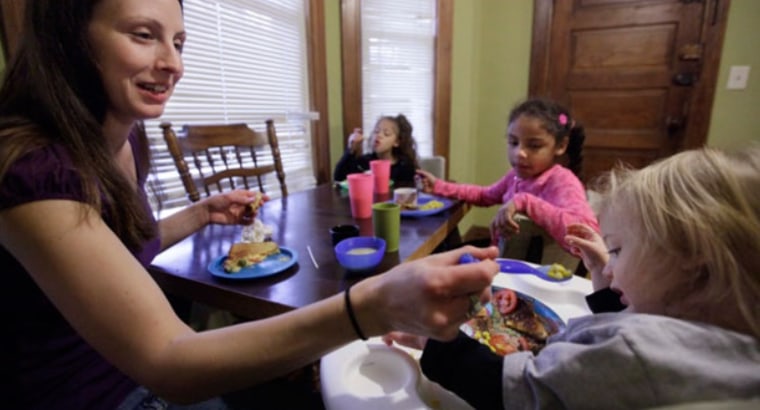
In context, of course, Ryan was referring to taxes. When he said "taking more from," he meant Democratic expectations that new revenue will be part of a balanced compromise. When the congressman said "hardworking families," he was referring to the nation's wealthy, whom Ryan hopes to shield.
But what really rankled about Ryan's comments was the narrow scope of his vision. If Democrats would like millionaires to pay a little more for the nation's benefit, the House Budget Committee chairman sees it as "taking more from hardworking families." But aren't looming food-stamp cuts a better example of actually taking more from hardworking families?
The 2009 Recovery Act's temporary boost in Supplemental Nutrition Assistance Program (SNAP) benefits ends on November 1, 2013, which will mean a benefit cut for each of the nearly 48 million SNAP recipients -- 87 percent of whom live in households with children, seniors, or people with disabilities. The depth and breadth of the SNAP cuts that take effect in November are unprecedented. Past cuts have affected specific states or groups, but they have not affected all participants nor been as large as these cuts.
I suspect this hasn't generated much attention because there's no effort whatsoever underway to prevent these cuts from taking effect tomorrow. Indeed, House Republicans left town yesterday afternoon, giving themselves another two-week break in advance of their Thanksgiving break later in the month.
But the fact that the outcome is clear doesn't make this any less of a problem. The 2009 stimulus expanded the scope of food-stamp benefits, and Democrats believe it's far too early and the economy is far too weak to end the expansion now. Republicans, eager to slash the SNAP program anyway, obviously disagree.
The result, starting tomorrow, is a severe reduction in benefits. From the Center on Budget and Policy Priorities' report: "A household of three, such as a mother with two children, will lose $29 a month -- a total of $319 for November 2013 through September 2014, the remaining 11 months of fiscal year 2014.... Without the Recovery Act's boost, SNAP benefits in fiscal year 2014 will average less than $1.40 per person per meal."
In theory, these cuts could be resolved through the pending farm bill, but it went to a House-Senate conference this week, and Republicans are pushing for breathtaking cuts, including taking food benefits from roughly 3.8 million people in 2014.
Let's also not forget that even if one is indifferent to the difficulties low-income families face putting food on the table, food stamps also have a broader effect on the larger economy -- when families are able to buy more groceries, it has a broader simulative effect, to the tune of about $1.70 in economic activity for every $1 in public investment.
With this reduction in benefits due to kick in tomorrow, many will struggle even more to get food, and the economy will have yet another drag thanks to inaction from congressional Republicans.